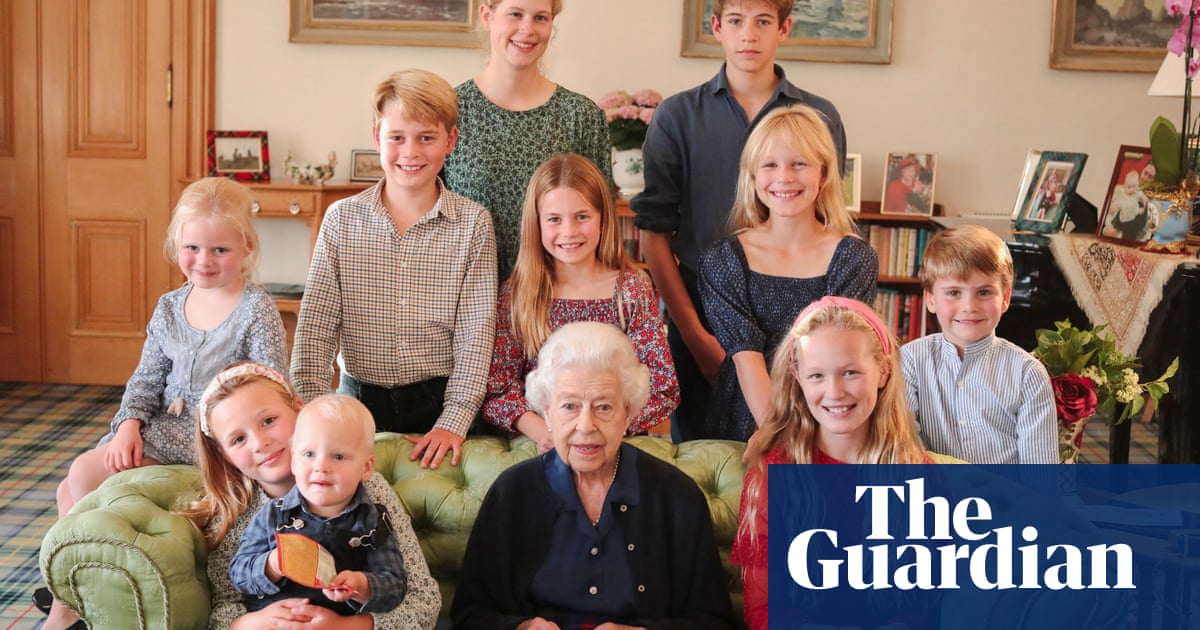
Queen Elizabeth II, the longest-reigning monarch in British history, has died at the age of 96, Buckingham Palace has announced.
She reigned for more than 70 years and will be remembered for her devotion to duty and public service.
“I declare before you all that my whole life, whether it be long or short, shall be devoted to your service,” Elizabeth said just a few years before she would take the throne, in a statement that would ring true throughout her life.
Becoming Queen at the young age of 25 after the death of her father, she would be seen as working to modernize yet safeguard the monarchy, making countless trips around the globe and remaining a much-loved figure despite a number of royal scandals.
The Queen is survived by her four children: Prince Charles, Princess Anne, Prince Andrew, and Prince Edward, as well as eight grandchildren and 12 great-grandchildren.
Her husband, Prince Philip, died at the age of 99 in April 2021, an event that the family said left a “huge void” in the Queen’s life.
Her son, Prince Charles, will become King with her grandson Prince William next in line to the throne after his father.
Born Princess Elizabeth of York in Mayfair on April 21, 1926, she was never expected to become a monarch and had a quiet, aristocratic upbringing.
It wasn’t until her uncle, King Edward VIII, abdicated the throne so he could marry American socialite Wallis Simpson that her father became King George VI, an unprecedented turn of events that would forever alter Elizabeth’s life.
As a princess, her first public broadcast was during World War II, when she gave a speech during the BBC Children’s Hour at just 14-years-old, after being sent to Windsor Castle with her sister Margaret while her parents remained in London during the war.
This radio broadcast, as many of her speeches would, was meant to give a boost to the public’s morale. In it, Elizabeth said she felt that she was “speaking to friends and companions”.
“Thousands of you in this country have had to leave your homes and be separated from your fathers and mothers. My sister Margaret Rose and I feel so much for you as we know from experience what it means to be away from those we love most of all,” the young princess said.
Princess Elizabeth joined the Auxiliary Territorial Service, the women’s branch of the British army in 1945, learning to be a car mechanic and becoming the first woman in the royal family to join the armed services as an active member.
After the war, she married Prince Philip aged 21 in an event that made headlines around the world. They welcomed their first child, Charles, the following year in 1948. Her second child, Princess Anne, was born in 1950.
Elizabeth’s family life was cut short after her father’s death in 1952 while Elizabeth and Philip were in Kenya. Senior government figures greeted her at the airport when she arrived back in Britain to take on the role of Queen.
More than 20 million people watched her coronation as it was broadcast live on June 2, 1953, making it a major television event that, according to the BBC, outnumbered the radio broadcast for the first time.
She completed a year-long tour of the Commonwealth that covered 70,000 kilometers, early in her reign, marking the start of many foreign tours that she would embark upon.
Her 1957 Christmas broadcast would be the first televised speech, giving the public greater access to her majesty.
“I very much hope that this new medium will make my Christmas message more personal and direct,” the Queen said, adding that it was “inevitable” that she be a “remote figure...someone whose face may be familiar in newspapers and films but who never really touches your personal lives. But now at least for a few minutes, I welcome you to the peace of my own home.”
The Queen had two more children: Prince Andrew in 1960 and Prince Edward in 1964.
But even as the world modernized, she made an effort to preserve the royal family through thick and thin.
One of the first scandals she would have to handle was her sister Margaret’s desire to marry Anthony Townsend, a relationship that parliament and the Church of England were against. Margaret eventually decided against the marriage.
The Queen both allowed greater access to the family and kept their affairs private. A 1969 fly-on-the-wall documentary about the family was reportedly requested to be never broadcast again after it gave too close a view of the family’s life.
But at times throughout her reign, her family would come into full view, with three of her children going through public divorces. She famously described 1992 as her "annus horribilis" due to marriage breakups and a fire at Windsor Castle.
Her son Charles’ relationship with his first wife Princess Diana was heavily scrutinized in the press, including his affair with Camilla Parker Bowles.
In a bombshell interview in 1995, Diana revealed she had postnatal depression and bulimia and said the family had used it against her to say she was unstable.
When Diana died in a car accident in Paris in 1997, the Queen was criticized for not speaking out and for not returning to London earlier.
Queen Elizabeth eventually gave a speech to the public, stating that she “admired and respected” Diana in an attempt to recognize the public’s mourning over the princess’ death.
Prince William, Diana’s son, described the Queen as trying to protect her grandsons during that time in a 2017 documentary.
Diana’s second son, Prince Harry, would also make headlines, giving an interview heavily critical of the royal family and its inner workings regarding its reaction to his wife Meghan. They painted a picture of a family business focused on image above all else.
That image was tarnished by the Queen’s son Prince Andrew over his connections to convicted sex offender Jeffrey Epstein and a sexual abuse lawsuit in the United States.
The relationship, accusations and Andrew’s poor response to it resulted in him stepping away from royal duties in 2019.
The Queen has remained a solid and popular figure in Britain, with recent opinion polls regularly giving her high approval and ranking as the most popular member of the royal family.
She has appointed and held audiences with 15 prime ministers and opened every session of parliament except in 1959 and 1963 when she was pregnant with Prince Andrew and Prince Edward. She also pulled out of this past year’s State Opening.
A great lover of animals and the outdoors, the Queen bred thoroughbred horses and attended horse races where they competed.
She bred Corgis and loved spending time in the countryside, at her Balmoral estate in the Scottish highlands and at Sandringham House in Norfolk.
While she has remained impartial in political matters, she’s also taken up causes that are important to her.
Even when she was unable to attend the UN climate conference, the Queen addressed the public, calling for world leaders to show real statesmanship.
In a letter marking her Platinum Jubilee — 70 years on the throne — she said she was “humbled and deeply touched that so many people” took to the streets.
“While I may not have attended every event in person, my heart has been with you all; and I remain committed to serving you to the best of my ability, supported by my family,” she wrote.
But her death is likely to shake the royal family and United Kingdom as they wrestle with how the role of a monarchy can adapt to today’s society, without the stable, steady leadership that Queen Elizabeth II provided for decades. — Euronews












